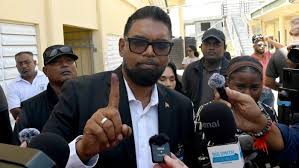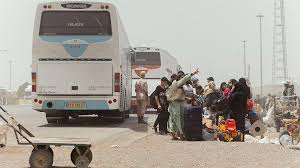Tensions escalated in Madagascar on Sunday after a section of the army announced that it had taken control of the country’s military forces, prompting President Andry Rajoelina to warn that an “attempt to seize power illegally” was underway.
The declaration came from the CAPSAT unit, a group of administrative and technical officers within the army, which has sided with thousands of anti-government protesters in Antananarivo, the capital, in what has now become a major political and security crisis.
On Saturday, the CAPSAT officers joined the protesters in the city centre and declared that they would “refuse any orders to shoot” civilians. The unit criticized the gendarmerie for using excessive force to disperse demonstrations — violence that has reportedly caused several deaths.
In a video statement, CAPSAT leaders announced that “all orders of the Malagasy army — land, air, or naval — will now come from CAPSAT headquarters.”
There has been no official response from other military units or top commanders, leaving uncertainty over how much control CAPSAT actually holds.
Eyewitnesses reported clashes between CAPSAT soldiers and gendarmes near a barracks on Saturday, before the mutineers rode into the city on military vehicles to join demonstrators who cheered their arrival and called for Rajoelina to step down.
In a statement released on Sunday morning, President Andry Rajoelina confirmed that an illegal attempt to seize power was underway but urged for restraint and unity.
“Dialogue is the only way forward and the only solution to the crisis currently facing our country,” Rajoelina said.
“We must reject violence and defend democracy.”
Government officials later assured citizens that the president remained “in the country and in control”, while the newly appointed Prime Minister said the administration was “standing strong” and ready for dialogue with all parties.
In a surprising turn, the gendarmerie released a video statement on Sunday acknowledging “faults and excesses during our interventions.”
“We are here to protect, not to terrorize,” the officers said, calling for “fraternity and unity” within the armed forces.
However, they also insisted that from now on, their orders would come solely from their own headquarters, deepening the confusion about command within the security apparatus.
The demonstrations, which began on September 25, were sparked by widespread anger over electricity and water shortages, as well as deep frustration over corruption and economic hardship.
The protests have since evolved into a broader movement against Rajoelina’s 16-year rule, which began after he first came to power following a military-backed uprising in 2009 — ironically led by soldiers from the same Soanierana military base now at the heart of the current mutiny.
According to the United Nations, at least 22 people were killed in the early days of the protests, while local media reported two more deaths and 26 injuries over the weekend. CAPSAT also claimed that one of its soldiers was killed by gendarmes during Saturday’s clashes.
Rajoelina has disputed the UN toll, saying that only 12 confirmed deaths had been recorded and that the victims were “looters and vandals.”
Diplomatic sources say the situation is being closely monitored by the African Union and United Nations, both of which have urged restraint and respect for constitutional order.
If confirmed, CAPSAT’s declaration could mark the most serious military challenge to Rajoelina’s presidency since 2009 — and risk plunging Madagascar into another cycle of political instability.
Madagascar, an island nation of over 30 million people, has a long history of political turmoil. President Rajoelina, now in his third term, has faced criticism over rising poverty, inflation, and unreliable public services, even as his government promises reforms under the slogan “Renewal and Prosperity.



